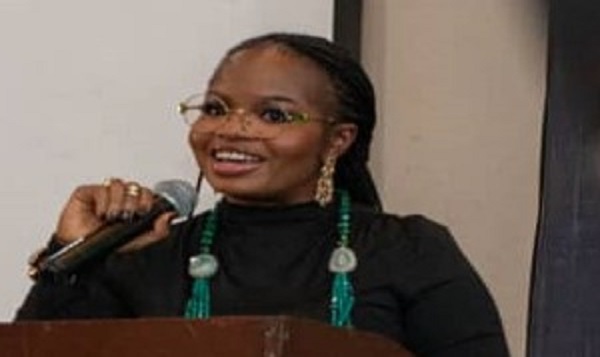News
Fears of Job Losses as Standard Chartered Closes some Nigerian Branches

Association of Senior Staff of Banks, Insurance and Financial Institutions (ASSBIFI), the workers’ union, which strives to Striving to eliminate barriers that deny individual right to enjoy dignity of labour and discrimination against workers, has said job losses are looming in the sector over a plan by Standard Chartered Bank to close 50 per cent of its branches in Nigeria.

There were reports on Monday that the United Kingdom-based lender would cut branches in Nigeria and focus more on digital banking.
Mrs Oyinkan Olasanoye, president, ASSBIFI, fear that some workers of the UK listed bank might lose their jobs following the development.
She spoke against the backdrop of the latest moves by Standard Chartered which had in December begun to close some branches, according to a Bloomberg News report.
Olasonoye said, “It is not possible for any bank to reduce branches that it won’t affect the employees. Despite the digitalisation, it is the employees of these banks that are still feeding the necessary machines and the necessary equipment to be able to work better.
“This will bounce back to Nigerians generally because Nigeria’s economy is a dependent economy, so those bank workers have some relatives and friends that they still assist financially. A single worker laid off will affect many Nigerians.”
While speaking on entitlements that job losers should have, she said, “It is not every staff that works in Nigerian banks that are full bank staff. The majority of them are contract workers.
“Standard Chartered Bank employees are not members of any union in Nigeria. If they were unionised and those people are our members, we would go into negotiation with the management on severance package, the allowance they are going to be paid.
“And one other thing again that we do in ASSBIFI is that we talk about reducing the number. If the management wants about 50 workers to go, we find a way to do negotiation to reduce the number to a lesser figure because of the effect on the families and the economy at large.
“But as long as they are Nigerian workers, if they walk into any of the labour centres, their case will be taken up and can then be directed to ASSBIFI level to be taken up on the ground that they are Nigerian workers.”
Standard Chartered’s reported decision came amid pressure on the finance industry by mobile money providers.
The closure teed off in December, which means just 13 branches of the bank will be up and running ultimately, compared to around 25 operating before the move, according to the news outlet.
There has been an uptick of lenders deploying mobile money services on a vast scale in Nigeria to tap the market of the unbanked population comprising approximately 38 million adults, which Dataphyte estimated to be worth N26.2 trillion for the first 11 months of last year.
News
LIRS to Invoke NTAA to Recover Unpaid Taxes from Bank Accounts, Others

Lagos Internal Revenue Service (LIRS) pursuant to Section 60 of the Nigeria Tax Administration Act (NTAA), plans to ask Nigerian banks to debit bank accounts of employers who failed to remit tax liability.

This was disclosed in a recent notice on Sunday.
LIRS stressed that the move was in line with the implementation of the country’s NTAA and other new tax laws, which took effect on January 1, 2026.
“Where a taxpayer fails, neglects, or refuses to settle any established outstanding tax liability when due, LIRS may exercise its power under Section 60 to direct any of the following persons to pay the amount owed by the taxpayer:
“Banks and other financial institutions; Employers; tenants, debtors, or customers of the taxpayer; Agents, business partners, and any person holding money on behalf of the taxpayer; Any person owing money to the taxpayer, whether presently due or accruing. Once a substitution notice is issued, the person served is statutorily required to remit to LIRS the amount. Specified in the notice from funds belonging to, or payable to, the defaulting taxpayer,” the LIRS notice partly read.
Meanwhile, Taiwo Oyedele, chairman of the Presidential Committee on Fiscal Policy and Tax Reforms, weeks ago ruled out claims that the government would debit personal accounts over tax remittances.
News
Anambra Cuts Monday Pay to Kill Sit-at-Home

Anambra State will implement pro-rata salary payments for civil servants starting February 2026, targeting chronic Monday absenteeism from the long-running sit-at-home order, Information Commissioner Dr. Law Mefor announced Saturday.

Soludo
Speaking at an Awka briefing after the Executive Council’s end-of-tenure retreat, Mefor said improved security and transport have eliminated excuses for the four-year disruption, which cost the state trillions in lost revenue. “Workers enjoyed full pay despite staying away; now, no work means no pay for that day, calculated over 24 working days,” he stated.
Compliance measures include mandatory Monday clock-in forms, with markets urged to reopen fully amid bolstered security. This builds on a January 22 executive order docking 20% pay from teachers absent on Mondays.
Mefor warned that lost Mondays cripple revenue collection and productivity, rejecting alternatives like Saturday shifts as capitulation to agitators.
News
Stakeholders Demand Stronger Governance and Infrastructure to Drive Tech Adoption @ Lagos AI Summit

As AI adoption accelerates across Nigeria, leaders at the “AI in Action Now” conference 2026 have called for a balance between rapid innovation and strict regulatory governance. The event, held at the Lagos Oriental Hotel, highlighted both the doggedness of Nigerian builders and the risks of unregulated data usage.

Dotun Adeoye, Co-Founder of AI Nigeria, raised alarms over “Shadow AI”, a trend where employees upload sensitive official documents to public AI platforms. He praised the Nigerian Data Protection Commission (NDPC) for its recent aggressive stance, including multi-million-dollar fines against major banks and social media brands.
“Innovation without governance is dangerous. The regulator now has the job of educating players. We are working in partnership with them to ensure players don’t just get fined, but actually understand how to protect data locally rather than storing it abroad, ” Adeoye noted.
Addressing issues of lack of infrastructure to carry AI adoption, Conference Convener Debola Ibiyode admitted that while Nigeria lacks the traditional foundation for AI adoption, the tech community cannot afford to wait.

“The simple answer is we don’t have the infrastructure, but Nigeria has never really had infrastructure to drive anything, and we still thrive, ” Iboyode said, encouraging students and builders to look beyond current limitations. “Once we start to build based on what we have now, it will encourage those who need to provide the infrastructure to do their part. The world will not wait for us,” she insisted.
To bridge this gap, she highlighted the AI Foundry Africa, an incubator designed to mentor ideas into market-ready products.
Meanwhile, speaking to journalists on the sidelines, Biodun Ogunleye, the Lagos State Commissioner of Energy and Mineral Resources, echoed the sentiment that the government’s role is to facilitate the right environment through partnership. He emphasized that data generated from interactions with the government must have long-term value.
“We must ensure that in all facets from production to interaction with government, the tools required to ensure data has value are appreciated,” Ogunleye stated.
He concluded that through private-sector collaboration, the government can focus on its primary functions while leveraging AI to ensure the nation aspires for the future.

 General News3 days ago
General News3 days agoPalmPay User Shares Experience on Fintech Apps to Trust in Nigeria

 News3 days ago
News3 days agoStakeholders Demand Stronger Governance and Infrastructure to Drive Tech Adoption @ Lagos AI Summit

 General News3 days ago
General News3 days agoNigerians Target Self-Improvement, Business Startups in 2026 Google Data

 News3 days ago
News3 days ago35 Million Nigerians Face Acute Hunger in 2026, UN Warns

 General News3 days ago
General News3 days agoHow Inside Jobs and Policy Shocks Trigger Nigeria’s Rising Loan Crisis

 E-Financial18 hours ago
E-Financial18 hours agoFirst Asset Management Receives Upgraded Ratings from Agusto &Co and DataPro

 News18 hours ago
News18 hours agoAnambra Cuts Monday Pay to Kill Sit-at-Home

 General News18 hours ago
General News18 hours agoNigeria Treats Religious Violence as Attack on State – NSA Ribadu

























